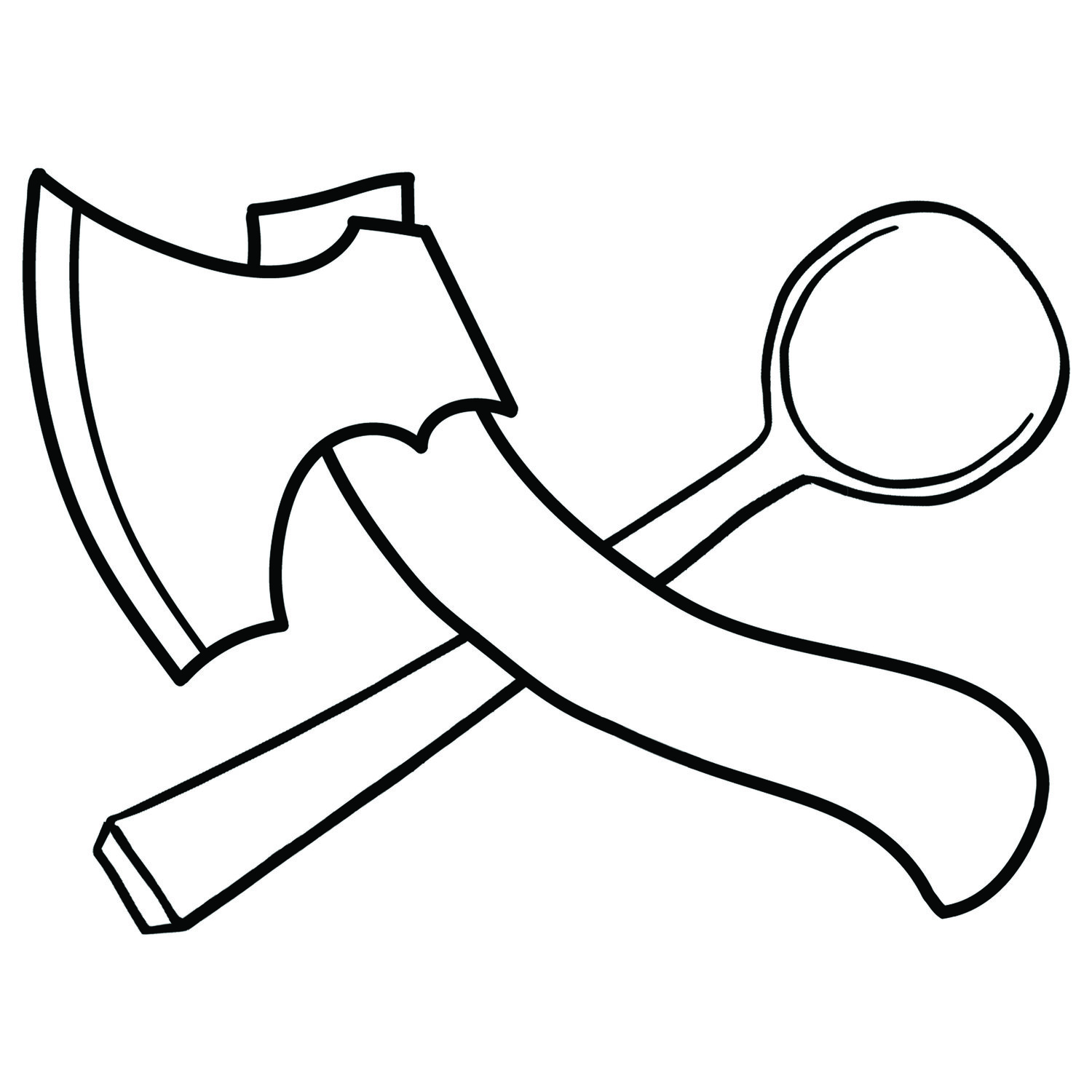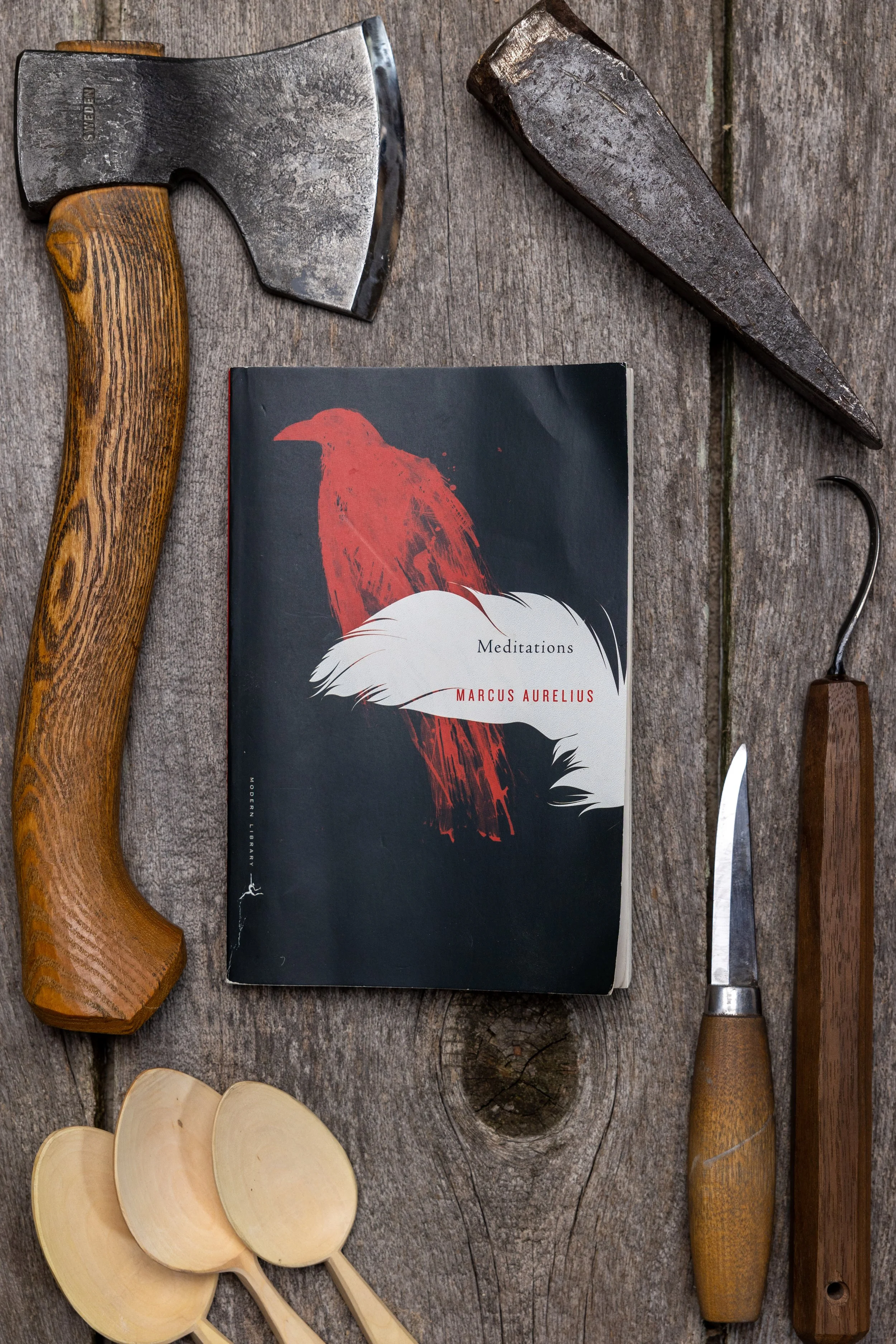The Stoic Wisdom of Carving Wooden Spoons
Imagine two distinct activities: one, delving into the rich philosophies of Marcus Aurelius, an emperor who ruled the world's most powerful empire two millennia ago. The other, carving wooden spoons.
These activities seem worlds apart. But we can find some common threads that aligns the ancient wisdom of Stoic philosophy with the peaceful act of crafting wooden utensils.
Guess what I’ve been reading…
Gleaning Wisdom from the Stoics
A big part of Marcus Aurelius's philosophy is the Stoic idea of living each day as if it were our last. This concept encourages us to put people first, adopt resilience, take measured steps towards our goals, let go of anxiety, maintain discipline, eliminate resentments, and focus on essentials.
These philosophical tenets of Stoicism encourage personal growth, stress the importance of moral virtue, and embrace accepting things beyond our control. Marcus Aurelius's wisdom teaches us how to navigate our lives, be it handling power or dealing with adversity.
The Art of Carving Wooden Spoons
On the surface, learning to carve wooden spoons might appear as an obsolete craft with minimal applicability to our lives. However, carving wooden spoons embodies the very essence of the Stoic philosophy that Marcus Aurelius championed.
Each spoon begins as a piece of wood, just as we start our lives with a blank slate. The process of carving is a journey of transformation, filled with careful decisions and patience, much like the actions Marcus Aurelius prompts us to take in our lives.
Aligning Stoic Philosophy with Spoon Carving
Let's explore how seven philosophical tenets Marcus Aurelius touches on align with the process of spoon carving:
Putting People First: Spoon carving, traditionally, is an act of service, creating utensils that provide sustenance to individuals and communities. This embodies the notion of prioritizing others' needs, as Marcus Aurelius suggested.
Adapting to the Circumstances: Carving requires you to respect the unique characteristics of the wood, to work with and not against it. This mirrors the Stoic emphasis on embracing challenges as a way to advance.
Taking Measured Steps: Carving a spoon is a gradual process, needing patience and perseverance. This aligns with the Stoic emphasis on action and incremental progress.
Discarding Anxiety: The act of carving can be meditative, helping us to discard our anxieties, as Marcus Aurelius advises.
Maintaining Self-Discipline: Carving requires discipline and focus, reflecting the Stoic notion of being strict with oneself.
Eliminating Resentment: Spoon carving requires acceptance of imperfections in the wood, akin to the Stoic principle of not resenting others for their flaws.
Focusing on the Essential: In carving, non-essential parts of the wood are removed to reveal the spoon, echoing the Stoic advice to concentrate only on what is essential.
The ancient wisdom of Marcus Aurelius and the humble craft of spoon carving intertwine in surprising ways, both encouraging mindfulness, resilience, service to others, and the embrace of simplicity. Learning to carve wooden spoons is more than just acquiring a new skill—it's a gateway to adopting a Stoic approach to life, enabling us to navigate life's challenges with grace and tranquility.
What philosophies appeal most to you? How do they align with the activities you like to do on a regular basis? Let me know in the comments.

